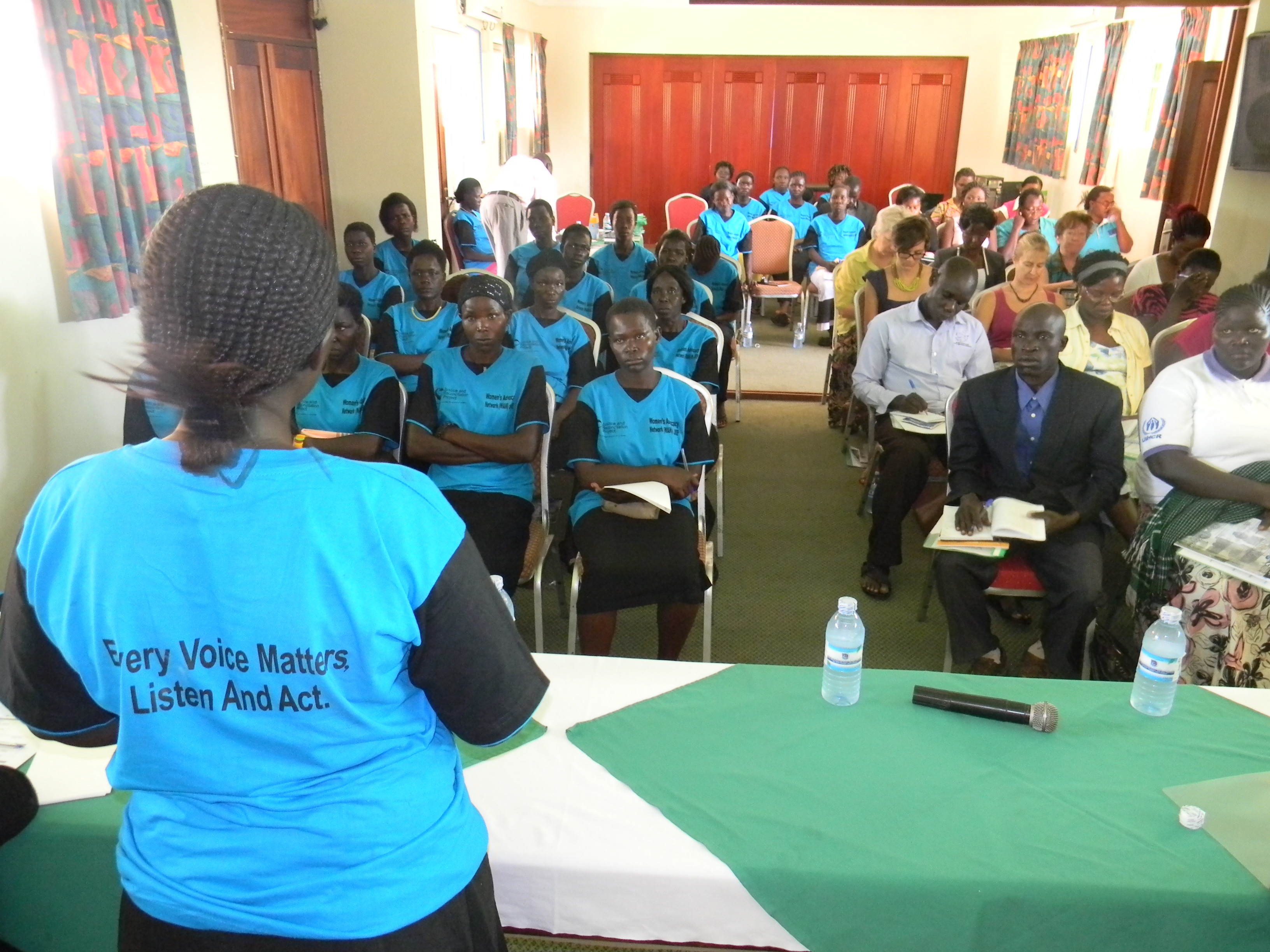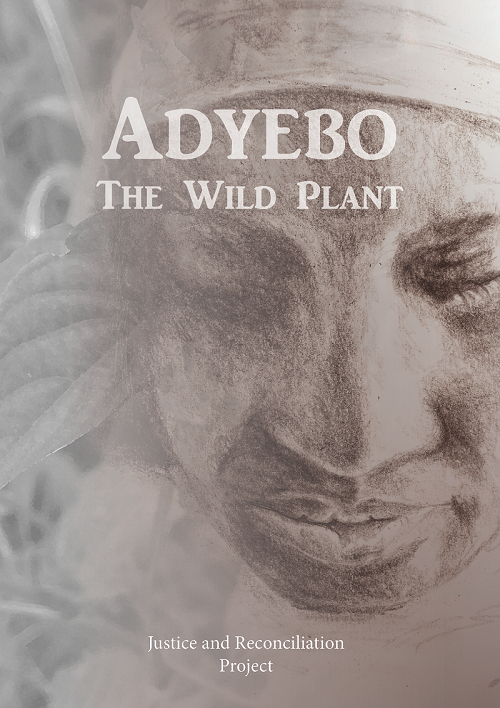24th February 2014
The Chairperson,
Uganda Women Parliamentarians’ Association (UWOPA)
Cc
1. The Rt. Hon. Rebecca Alitwala Kadaga
Speaker of Parliament of the Republic of Uganda
Kampala -Uganda.
2. The Acholi Parliamentarians’ Association
PETITION BY WOMEN’S ADVOCACY NETWORK TO THE PARLIAMENT OF THE REPUBLIC OF UGANDA SEEKING ITS INTERVENTION IN ADDRESSING ISSUES AND CHALLENGES FACED BY WAR AFFECTED WOMEN IN THE ACHOLI SUB REGION.
Madam Chairperson,
This humble petition is submitted pursuant to rule 29 of the rules of procedure of the Parliament of the Republic of Uganda.
Women’s Advocacy Network on behalf of war affected women in the Acholi sub region presents this petition to you. We are seeking your support to lobby for the intervention of Parliament of the Republic of Uganda to address issues and challenges faced by war affected women in the Acholi sub region.
Madam Chairperson, we acknowledge and are appreciative of the efforts and input of this August House in articulating and bringing to the fore the issues and concerns of the people of Northern Uganda who have been greatly affected in all spheres of life by the conflict that spanned over twenty (20) years. We are especially appreciative of the role UWOPA continues to play to ensure women issues are taken into consideration and their rights are upheld in Uganda.
Madam Chairperson, we were adversely affected by the conflict between the LRA and Government in Northern Uganda. Some of us were abducted, tortured, raped, mutilated, forced to become wives of rebel commanders, provided forced labor in rebel camps and were also forcefully conscripted to engage in combat. We were forced to bear children under harsh and deplorable conditions. As a result we developed health complications such as gynecological problems, chronic back problems, gunshot wounds and were exposed to traumatic experiences. We also gave birth to children in captivity who are being ostracized by the communities we live in.
Madam Chairperson, those of us who escaped abduction were forced to live in deplorable conditions in the Internally Displaced Peoples (IDP’s) camps where we were often targeted for rape and sexual exploitation. We contracted HIV/AIDS as a result and also bore children out of rape. We continue to bear the burden of looking after our immediate and extended families in absence of our husbands who were killed in the conflict or are still missing and are unaccounted for.
Our current status
Madam Chairperson, majority of us do not know the identity of the fathers of our children since the LRA commanders who sexually enslaved and abused us in captivity used pseudonyms, while the few whose identities are known, have refused to pay maintenance for the children they forced us to bear. We continue to face rejection and stigmatization from an embittered community and families that are not ready to accept children fathered by rebels.
Madam Chairperson, while most of the male combatants were integrated in the army and receive a monthly stipend, there was no such mechanism for the support and reintegration of the female victims apart from the amnesty package which did not take into consideration the children we came back with from captivity.We find ourselves re-victimized and forced to live in deplorable conditions.
Madam Chairperson, we are also vulnerable economically, socially, physically and psychologically. We missed out on opportunities of going to school and wasted a lot of our productive years in captivity. This hinders us from accessing formal employment, yet we live in a society where it is difficult for women to access land. This has relegated us to casual jobs that do not pay very well in spite of our everyday burdens and challenges inclusive of the cardinal responsibility of looking after our children that were born in captivity.
Madam Chairperson, we as Women’s Advocacy Network are not sitting down and wallowing in our pain and misery but rather doing our part in our small ways to alleviate the challenges we are facing. We continue to hold dialogues in our communities aimed at reconciliation, fighting stigma and reintegration.
Prayers sought
Madam Chairperson, we are confident of the role that the Parliament of the Republic of Uganda plays in addressing issues that affect the citizens of Uganda and are assured that our concerns will be discussed by the August house. Therefore, as the Women’s Advocacy Network on behalf of war affected women in the Acholi sub-region, we request you to lobby the Parliament of the Republic of Uganda to;
- Adopt a comprehensive reparations policy that will help us alleviate most of our problems related to our social economic status thus reducing our vulnerability. The proposed reparations policy should offer individual and collective reparations to female survivors of this conflict as well as acknowledge, repair the harms suffered, restore our dignity and recognise our rights as citizens of this country. The proposed reparations policy should offer free accessible health care tailored to address women’s health issues, livelihood skills to help us recover lost education opportunities and compensation for lost time.
- Prioritize the creation of an urgent gender reparations fund to cater for the immediate needs of war-affected women.
- Recommend for increased budgetary provisions for health services in war-affected areas, to ensure accessibility to reproductive and mental health services especially for children and women affected by the war.
- Recommend for increased budgetary allocation to the education sector to cater for war affected children in the Acholi sub region and particularly children born in captivity. This allocation should also be used to train teachers on how to handle such children that may be experiencing trauma and other conditions related to their past.
- Call for an accelerated finalization of the National Transitional Justice Policy and the establishment of a sound legal framework with comprehensive, adequate and sustainable mechanisms which are key in addressing the concerns of war affected women.
- Ensure that the National Transitional Justice Policy that will be adopted is holistic and will include mechanisms to ensure full participation of war affected women.
- Recognize the special and unique needs of the children born in captivity whose fathers and patrilineal heritage is unknown and request for a review of the laws that require information and documentation on paternity to be amended.
- Call for strengthening of the Acholi cultural institution because it was also affected by the conflict yet it is a trusted body that can play a big role in addressing the reconciliation needs of its people.
Madam Chairperson, we are available whenever called upon to shade more light on issues encompassed in this petition.
We remain yours the undersigned;
Download: Women’s Advocacy Network petition (pdf)




